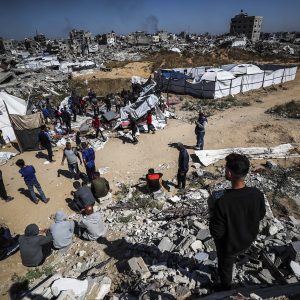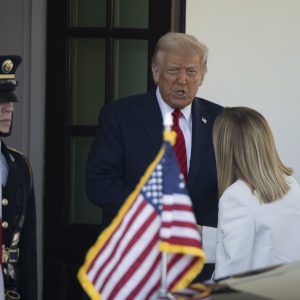Sierra Leone leader urges end to Ukraine war for ‘sake of humanity’
Freetown, Sierra Leone (AFP):
Sierra Leone’s president expressed hopes in an interview that a newly announced African mediation effort would end Russia’s war in Ukraine “for the sake of humanity”.
“We are all suffering as a result of the war in Ukraine… For the sake of humanity, for what is happening, let’s end the war,” said President Julius Maada Bio, who was elected in 2018 and will next month seek a second term.
“I think even those who sympathise with Russia are in favour of stopping this war,” he said in the interview.
The leaders of Zambia, Senegal, the Republic of Congo, Uganda, Egypt and South Africa will next month launch a mission to Moscow and Kyiv to try to broker peace.
African countries, which were already struggling from the Covid-19 pandemic, have been hit hard by the war and its impact on supply chains and prices.
African countries have been divided at the UN over the conflict, but Sierra Leone has voted with Western nations in favour of resolutions to condemn Russia’s actions.
Last July, Sierra Leone slashed three zeros off its currency hoping to restore confidence in the inflation-hit leone unit.
In August, riots erupted over the rising cost of living and 27 civilians and six police officers were killed.
“We have a vested interest in seeing to it that that war comes to an end as quickly as possible… especially as a country that has gone through war before — but also (because of) the impact on us,” said Bio.
Sierra Leone’s mineral-dependent economy is still recovering from a brutal 1991-2002 civil war and the 2014-2016 West Africa Ebola epidemic.
Bio, 59, also set out plans to end his country’s reliance on food imports and foreign aid.
“It is not a pleasure to go begging around nations, when you say you’re a sovereign nation,” he said. “I believe that we can do enough to develop our own resources.”
He said agriculture would be a second term focus, pledging “serious policy shift in the Ministry of Agriculture to be able to produce our staple food, to the point that we will not need to import rice”.
The West African country of 8 million people will hold presidential, parliamentary and municipal elections on June 24.











